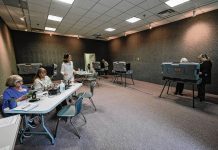If the pilot program works, it will make a major difference for Bartholomew County youth struggling to get out of the juvenile justice system.
Around 75% of kids involved in the county’s juvenile justice system are considered at moderate to high risk of having mental health issues, or becoming involved in substance abuse. Local health professionals have also identified that the level of “suicidal ideation” has also been consistently high for 13 years.
If these children don’t receive adequate mental health services early on, many of them end up repeat offenders in the system. These issues also often carry into adulthood.
In an effort to address local struggles, several individuals and organizations are now working on a proposed pilot project called “Youth and Family Community Connections.” In its early stages, the preventive support services program would also have a Hub serving as a single point of assessment; similar to the Alliance for Substance Abuse Progress (ASAP) .
Individuals in the program will be either in legal trouble or have been involved with the Department of Child Services. Each person will individually be analyzed so effective steps can be taken to building skills that protect against risky behaviors.
The program plans to have coaches or system navigators which will strive to assure children would receive the same connections and support no matter where they live or their individual circumstances. Examples of connections and support include social service referrals, coordinated entry into services, and school connections for youth transitioning to a different education environment.
Instead of placing youth under arrest immediately, law enforcement will also be encouraged to refrain from bringing children into the juvenile justice system for “status offenses.” The offenses include truancy, curfew violations, underage drinking and running away from home. Roughly half of all children in juvenile detention are admitted due to status offenses. Of all the referrals received, no action is taken on 60% to 65% on them.
The plan is still in its early stages, and has not yet been approved, but shows serious promise.
This pilot project has gained enough support to warrant a pilot program. Not only will it help kids now, but hopefully set them up or future success.
We look forward to seeing the future proposal.




